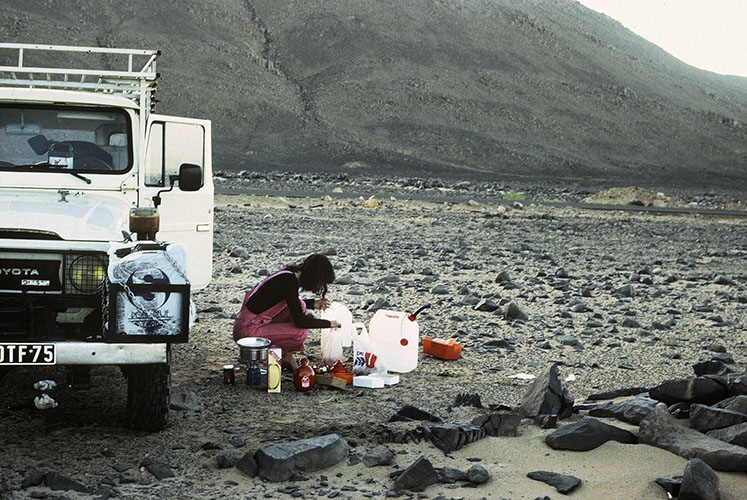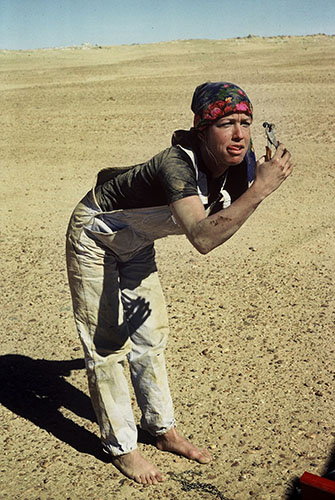
FIRST STEPS
VIA THE SAHARA
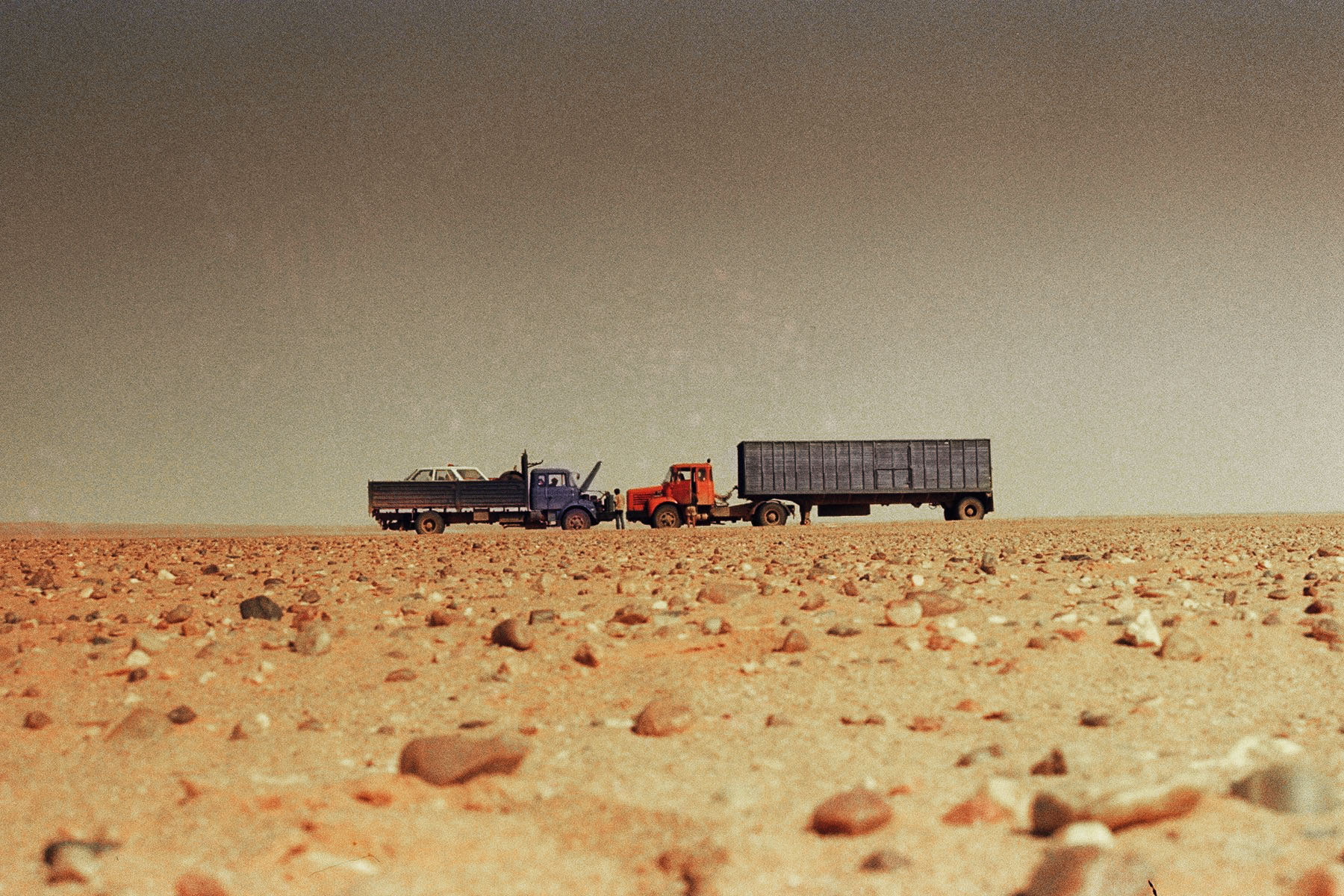
My blue truck and the Corporal’s red trailer
Like other ethnologists working in Niger, we crossed the Sahara by car, which we then used for our missions. No more expensive rentals. The return plane tickets were virtually free thanks to reselling the cars. The ‘transport’ budget line was almost zero.
For the operation to be profitable, we had to buy an inexpensive vehicle. The downside was the breakdowns that cost us time. But we got used to plugging a radiator with a piece of soap, fixing an ignition, and finding help to dismantle and reassemble an engine at the side of the road.
AT THE “CAMPEMENT”
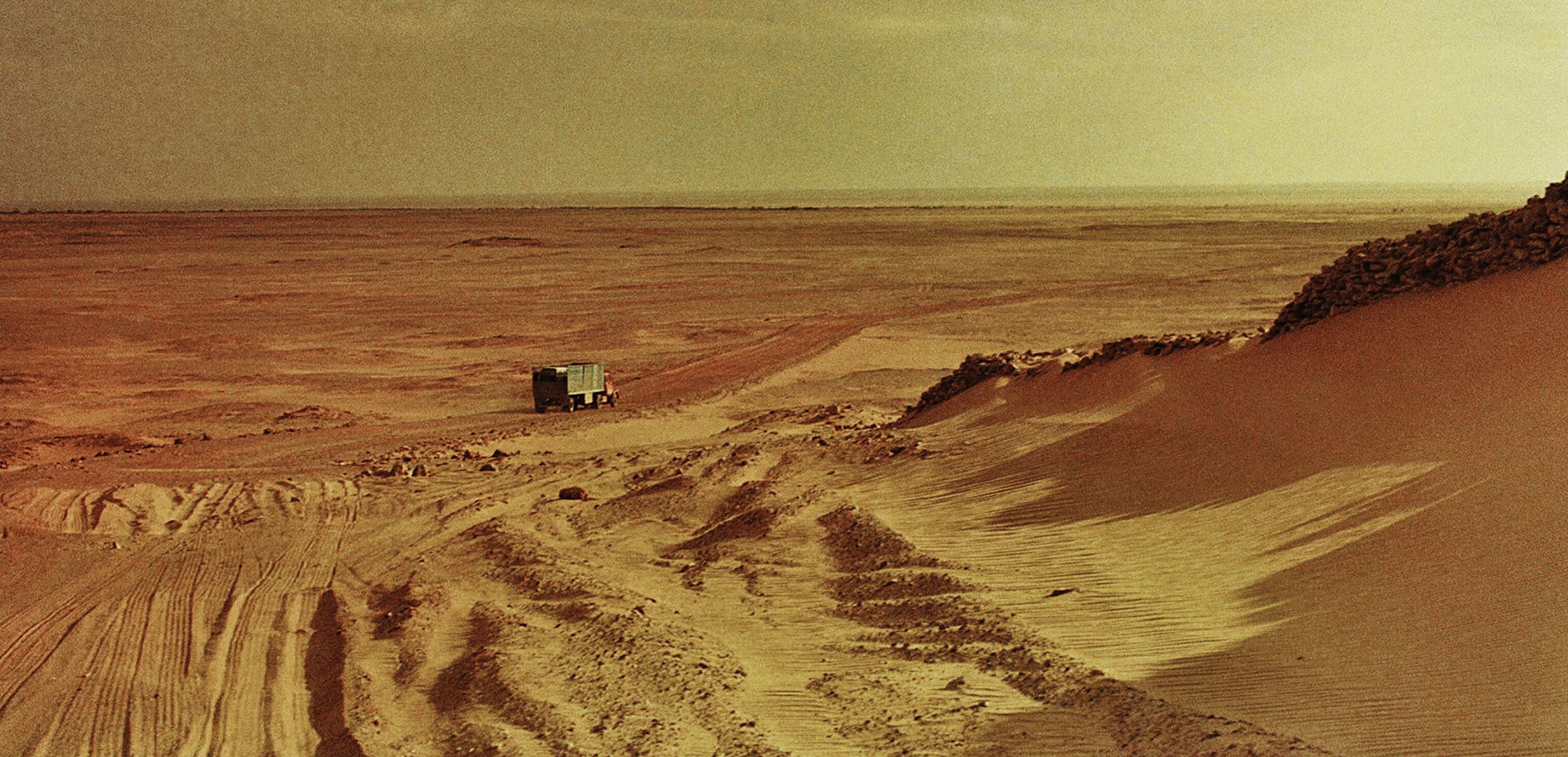
One evening when I had come to fill up with petrol and Nescafé and post some letters at the capital of the sub-prefecture, I sat down by the roadside on the terrace of the “Campement”, an administrative inn, a vestige of colonisation. Lit by a storm lamp, waiting for a goat-rice-au-gras steak, a vestige of modernity, I suddenly saw an impressive truck pull up. Two white men got out. The driver, lean and dressed in khaki, followed by a young curly-haired man, a hitchhiker. I invited them over to my table.
The driver was ex-military and earned his living trading in trucks. With these things, you can double or even triple your profits! I immediately mentally converted this into mission time. What you do is get your HGV licence, invest in two trucks in France, one for you, one for me, I find them, I guide the convoy through the desert. We sell them in Niamey and I pay you back. Deal! A meeting was set up in France with the man I was to call Corporal.
I got my HGV driving licence. At the same time, the CNRS was offering a mechanics course for field researchers: palaeontologists, archaeologists and prehistorians. We learned how to detect a breakdown, listen to a gearbox, regularly service the engine… After that, I bought myself a magnificent red toolbox, choosing each item according to Saint Mechanic of the CNRS.
MECHANICS OF THE OPEN ROAD
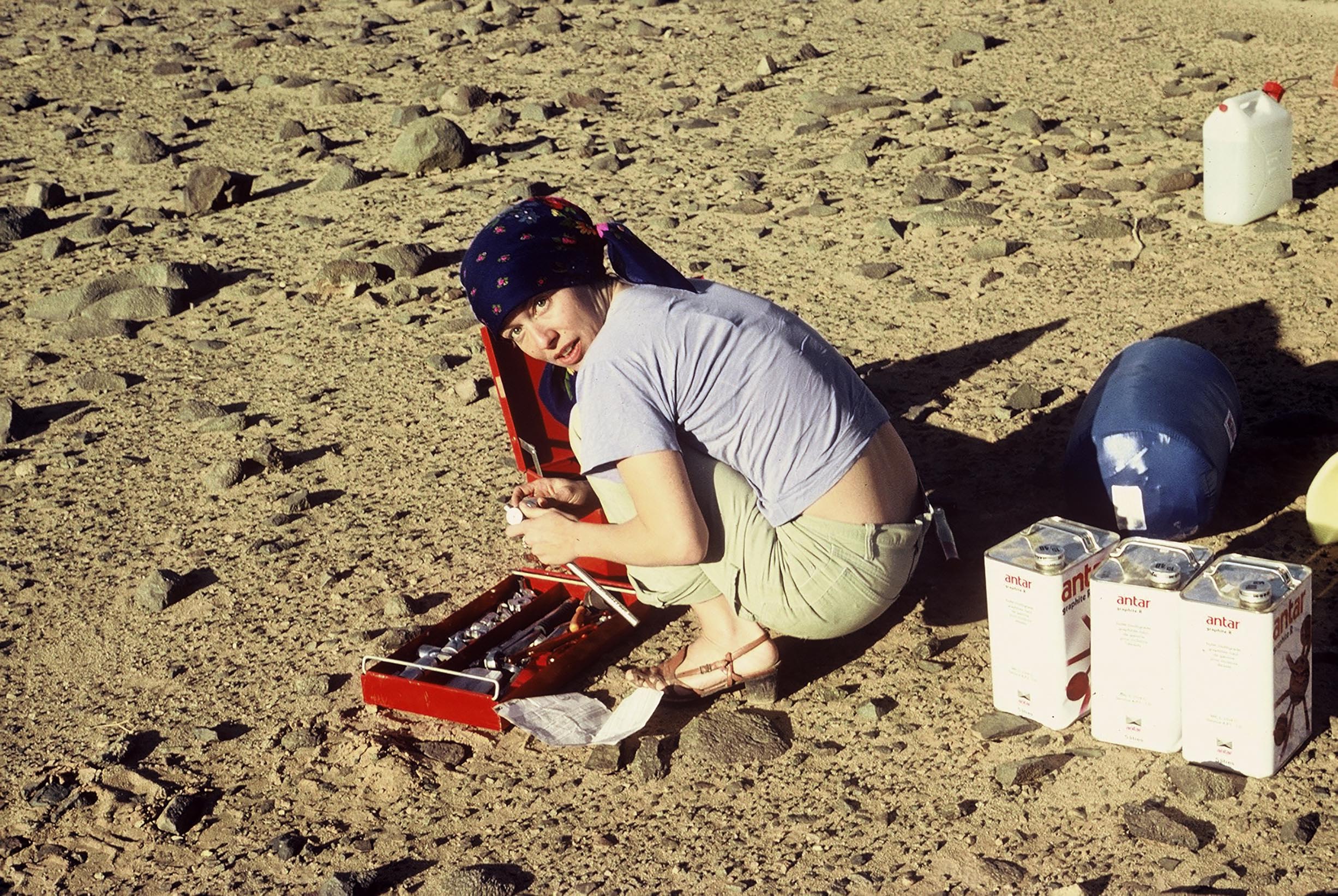
Some time later, Corporal and I found ourselves in a huge truck yard in Bordeaux. It was dark. He took me to a blue 19-tonner lit by sodium lighting, which gave it a certain mystery. It was love at first sight. He had chosen a semitrailer. I paid a sum that seemed cheap compared to the mass of metal, although the rust was spreading.
We set off after loading a car on each flatbed together with some spare parts. It was a mistake on the part of Corporal, designed to make the journey profitable, but which made it difficult at the border because of the forwarding agents and customs officers. My CNRS mission order with the red, white and blue flag with a long-winded speech about the need for lots of equipment for ‘excavation’ solved a lot of the problems. But we still spent eight days stuck at Algerian customs.
THE TRUCK, THE BRUTE AND THE GIANT

Under my truck, greasing
I got to Niamey within a month and sold my truck to a very big Hausa trader who must still want to slit my throat. The registration showed that the truck was 20 years old, I had never broken down and had maintained it with care. But this indigo behemoth decided to give up the ghost once the registration document had changed hands!
Rouch, who was in Niamey, told me off. You have to choose: truck smuggler or researcher at the CNRS! I had no qualms. The Hausa was infinitely richer than me and we were both in the world of bullies. I got behind the wheel of my excellent Peugeot, which, having been transported, had not suffered the rigours of the desert, and set off into the field… for the CNRS.
Travelling through the Sahara added beauty and wonder to these missions. A boundless mineral giant under a clear sky streaked with meteors. You feel infinitesimal, yet filled with freedom like a hot-air balloon inside. Théodore Monod suggested that we should “be as silent as the desert”. I’ve crossed it three times.
